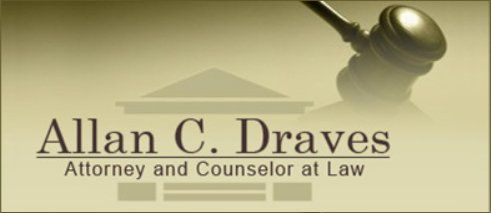Blog Post
HOW TO LOWER THE POSSIBILITY OF LANDLORD & TENANT DISPUTES BEFORE YOU RENT OUT YOUR HOME
- By adrav@aol.com
- •
- 20 Sep, 2017
- •

There's a lot of reasons that can make renting out your house attractive. However, there's many things you should know before you rent your home out to tenants. Landlord and tenant disputes can make renting your house out far more of a hassle than you would have thought.
Here's how you can reduce the possibility of such disputes from the very beginning
HAVE A GOAL & A PLAN
Before you do anything else, you should do the math. Renting out your home comes with financial considerations that need to make sense for you. You will have a rental property and a business. It's a property that may still have mortgage payments. It's a property that will certainly have property taxes and maintenance costs.
This is all outside of what you're doing to support yourself elsewhere. For example, do you own another home? Are you fulfilling your dream of living on the road and traveling the country? Can you afford to deal with renting out your Orlando home while maintaining your lifestyle?
You'll want an ROI that covers the property and any eventualities that can come up from having tenants live there. As a business, you'll want to look into what costs you can write off while renting your property. After you do the math, you may find you're better off selling your home or taking another option regarding it.
KNOW THE LAWS INVOLVED
When you choose to rent your house out, you're choosing to obey federal, state and county laws. It's a good idea to familiarize yourself with all applicable laws before you start looking for tenants. Sometimes these laws all overlap.
If you research the county laws, they often contain language that satisfies state and federal laws. For example, anti-discrimination laws apply countrywide, in the State of Florida and in Orange County.
If you want to lower the possibility of a landlord and tenant dispute, you need to make sure you study the applicable laws. A good place to start is with the Federal Housing Act. You'll also want to familiarize yourself with the official Florida landlord and tenant statutes.
Remember, both landlords and tenants have legal rights. As a landlord, you will need to know how the laws work for both parties.
KNOW YOUR RESPONSIBILITIES AS A LANDLORD
As the property owner, you also have many responsibilities. It's on you to make sure the property is habitable. That means you must always make sure the property complies with all building and housing codes.
Maintaining the essential mechanisms that make a house habitable is your responsibility. That includes things like plumbing, water, electricity and sanitation.
It's a good idea to have some contractors on call or brush up on some common home repairs you can perform yourself. If you're not close to the property, you should consider hiring a property management company for routine maintenance and problems.
ENSURE YOUR LEASE COVERS EVERYTHING IT SHOULD
Your lease or rental agreement shouldn't have any vague language or anything your tenant can misconstrue. Avoid using cookie-cutter templates or boilerplate leases. You'll want to outline all tenant responsibilities.
Your tenants should have no doubt whatsoever about what they can and cannot do on or with the property. A good idea is to make renters insurance mandatory for your tenants as well.
Equally, your lease should outline your own powers and permissions regarding the property. You should also have a property lawyer go over your lease with you to make sure it's in compliance with the law and lists everything it should.
INVOLVE A REAL ESTATE ATTORNEY
Speaking to a qualified attorney is a good idea for anyone who wants to rent out their house. A real estate attorney can help you decide if renting out your property is a good decision for you.
Allan C. Draves, Attorney and Counselor at Law, has 30 years of experience with practicing real estate law in Florida. Contact us today to discuss how you can lower the possibility of landlord and tenant legal disputes.
Share
Tweet
Share
Mail
Allan C. Draves, Attorney and Counselor at Law
401 W. Colonial Drive, Suite 4
Orlando, FL 32804
Phone:
407-422-2462
Email:
adrav@aol.com
Fax:
407-422-2449
Business Hours:
Monday-Friday, 9 a.m. – 5 p.m.
Saturday-Sunday, Closed
Appointments Available
Member of Florida Bar
Free Initial Consultation
Content, including images, displayed on this website is protected by copyright laws. Downloading, republication, retransmission or reproduction of content on this website is strictly prohibited. Terms of Use
| Privacy Policy
^





